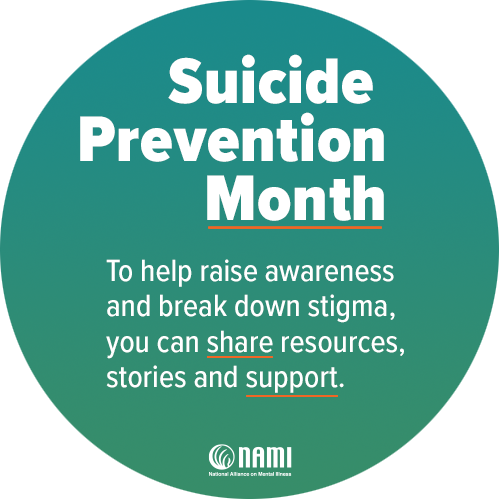As customer experience (CX) leaders, our responsibilities extend beyond balance sheets and business metrics. We are the stewards of culture, the architects of organizational well-being, and the voices that can inspire change. September is Suicide Prevention Awareness Month—a time that calls us to step up, engage, and lead with empathy and impact. At Execs In The Know, we’ve partnered with the National Alliance on Mental Illness (NAMI) to highlight the importance of mental health, not just as a corporate initiative but as a fundamental component of leadership.
Why Mental Health Matters for Leadership
Mental health is no longer a sidebar topic—it’s central to the sustainability of our organizations. The demands placed on leaders and employees alike have intensified, with them, the need for robust mental health support systems. When we neglect mental health, we risk not only the well-being of our people but the very foundations of our businesses.
The link between mental health and productivity is well-documented. Employees who feel supported are more engaged, productive, and likely to stay with an organization long-term. But a deeper, more human element is at play beyond the numbers. Leadership is about people; people are at their best when they feel understood, valued, and supported.
The Role of Leadership in Mental Health
 As leaders, our influence can shape the culture and values of our organizations. Although these are important steps, offering wellness programs or mental health days is not enough. Authentic leadership involves fostering an environment where mental health is openly discussed, where stigma is actively removed, and where every team member feels safe to voice their struggles without fear of judgment or retribution.
As leaders, our influence can shape the culture and values of our organizations. Although these are important steps, offering wellness programs or mental health days is not enough. Authentic leadership involves fostering an environment where mental health is openly discussed, where stigma is actively removed, and where every team member feels safe to voice their struggles without fear of judgment or retribution.
This requires us to be vulnerable, share our experiences, and lead by example. Doing so creates a ripple effect that encourages others to prioritize their well-being and seek help.
Read our latest article Why Supporting the Mental Well-Being of Employees and Senior Leaders Is Good for Business (and Just the Right Thing to Do) from our July 2024 issue of CX Insight magazine.
A Partnership for Change
Execs In The Know has partnered with NAMI to bring mental health awareness to the forefront of our industry. Together, we are working to remove the stigma associated with mental health challenges, promote open dialogue, and provide resources that can make a tangible difference.
Through NAMI’s Suicide Prevention Month Partner Toolkit, leaders are equipped with the tools to amplify awareness, engage in meaningful conversations, and drive impactful change within their organizations.
How You Can Lead with Impact
Champion a Mental Health-First Culture
Start by integrating mental health into your organization’s core values. Ensure that mental well-being is prioritized over physical health and safety. This means more than offering wellness programs; it means embedding mental health awareness into every facet of your organization—from onboarding processes to daily team interactions.
As a leader, model this by openly discussing mental health and encouraging others to do the same.
Provide Accessible Resources and Support
Equip your employees with the tools and resources to manage their mental health effectively. This could include access to mental health professionals, employee assistance programs, and comprehensive benefits that cover mental health services.
Additionally, consider implementing regular mental health check-ins, where employees can anonymously express their concerns or seek guidance. Integrate these resources into your company’s communication channels to make it easy for your team to find and utilize them.
Foster Open Communication and Psychological Safety
Cultivate an environment where employees feel safe discussing their mental health without fear of judgment or negative consequences. Psychological safety is a cornerstone of innovation and productivity; employees are more likely to share ideas, take risks, and collaborate effectively when they feel secure. Lead by example—share your experiences with mental health challenges and actively listen to your team’s concerns.
Train Leaders and Managers
Your leadership team plays a critical role in setting the tone for mental health in the workplace. Invest in training programs that educate managers and leaders on recognizing signs of mental health struggles, approaching sensitive conversations, and supporting their teams effectively.
Empower your leaders to be the first defense in preventing burnout, identifying early warning signs, and offering support before a crisis occurs.
Promote Work-Life Balance
Encourage a culture that respects boundaries and promotes work-life balance. Recognize that overwork and stress can be significant contributors to mental health issues. Implement policies that support flexible working arrangements, encourage regular breaks, and promote time off to recharge.
As a leader, respect these boundaries yourself, demonstrating that it’s okay to step away and prioritize personal well-being.
Engage in Continuous Learning and Advocacy
Stay informed about the latest developments in mental health research and advocacy. Participate in industry-wide discussions and collaborate with organizations like NAMI to stay ahead of best practices. Use your influence to advocate for mental health awareness within and outside your organization.
By being a continuous learner and advocate, you set a powerful example for your team and contribute to broader societal change.
Measure Impact
Finally, mental health initiatives should be treated rigorously as any other business objective. Set clear goals, measure outcomes, and hold yourself and your organization accountable for progress. Regularly review and refine your mental health strategies based on feedback and results. Show your commitment by sharing your progress with your team and celebrating successes like any other critical business milestone.
By embracing these actions, you don’t just lead—you lead with impact. You contribute to creating a workplace where mental health is prioritized, and everyone feels supported, valued, and empowered to thrive. This September and beyond, let’s ensure that our leadership makes a lasting difference in the lives of those we lead.
A Call to Lead with Purpose and Compassion
September is more than just a month on the calendar—it’s a call to action. It’s a time for leaders to support mental health and Lead with Impact. By prioritizing the mental well-being of our teams, we not only enhance our organizations but contribute to a broader movement that can change lives.
This September, let’s commit to making a difference that truly matters. Together, we can foster hope, support mental health, and save lives.
































































































 TELUS Digital
TELUS Digital ibex delivers innovative BPO, smart digital marketing, online acquisition technology, and end-to-end customer engagement solutions to help companies acquire, engage and retain customers. ibex leverages its diverse global team and industry-leading technology, including its AI-powered ibex Wave iX solutions suite, to drive superior CX for top brands across retail, e-commerce, healthcare, fintech, utilities and logistics.
ibex delivers innovative BPO, smart digital marketing, online acquisition technology, and end-to-end customer engagement solutions to help companies acquire, engage and retain customers. ibex leverages its diverse global team and industry-leading technology, including its AI-powered ibex Wave iX solutions suite, to drive superior CX for top brands across retail, e-commerce, healthcare, fintech, utilities and logistics.






















 Trista Miller
Trista Miller



























